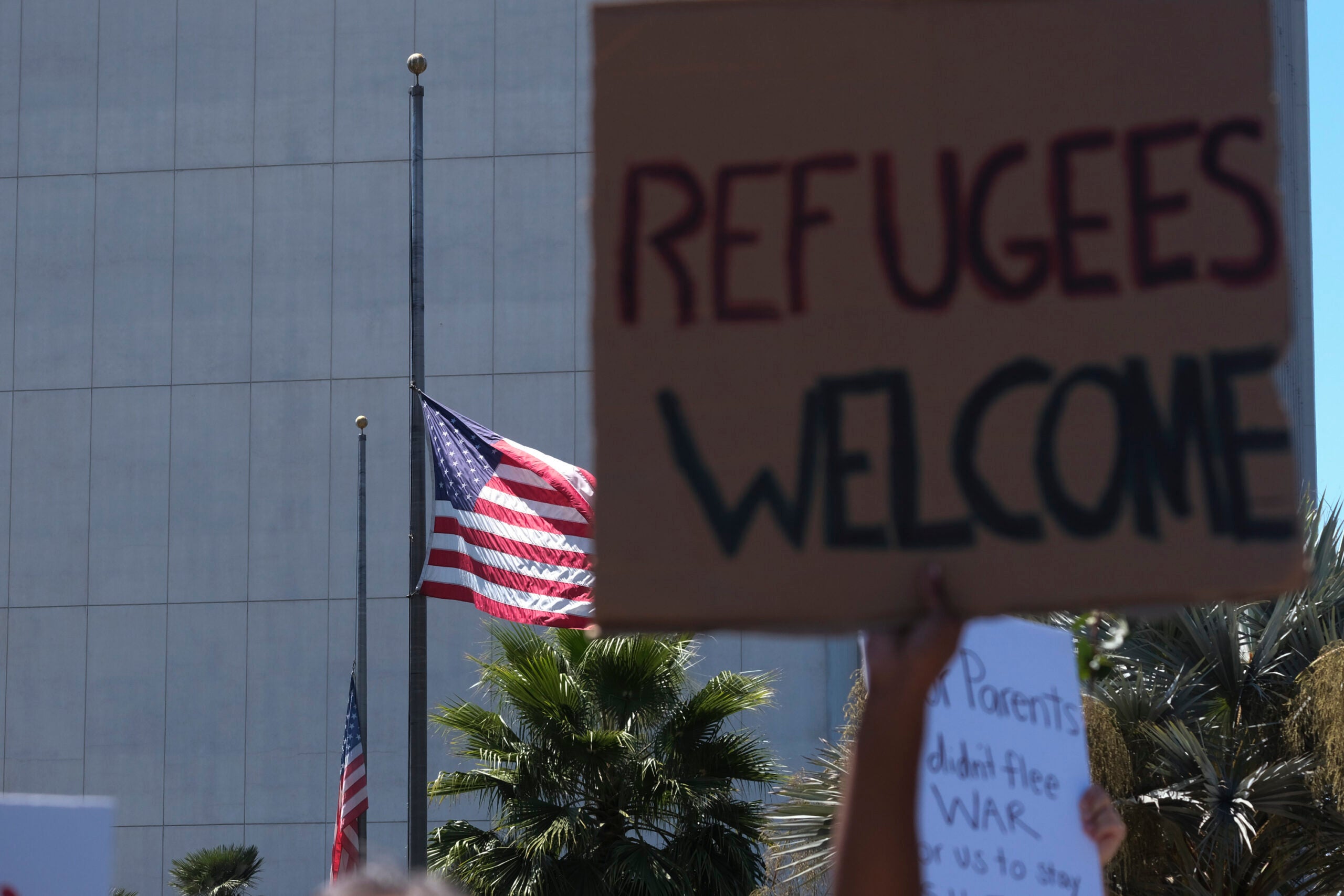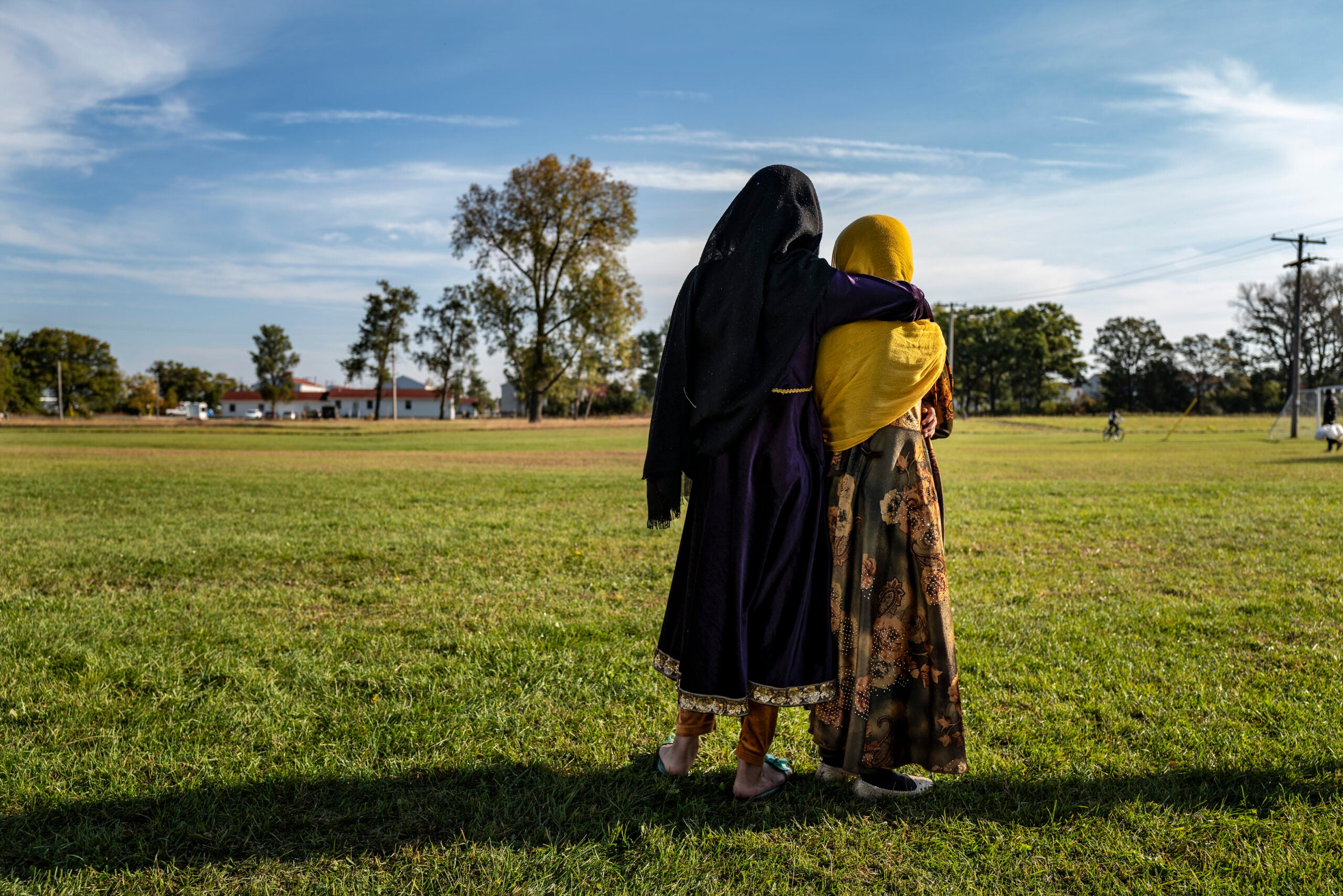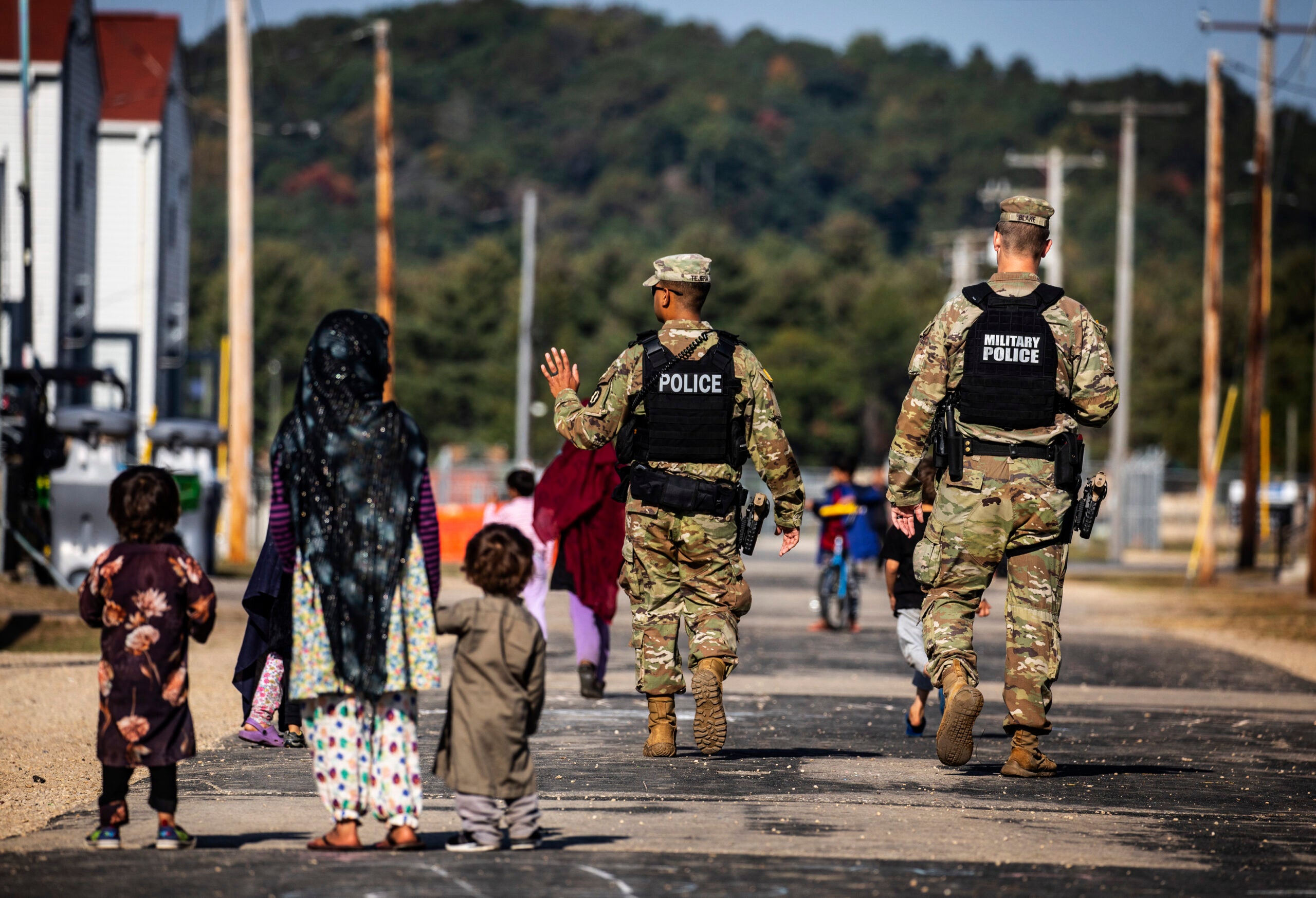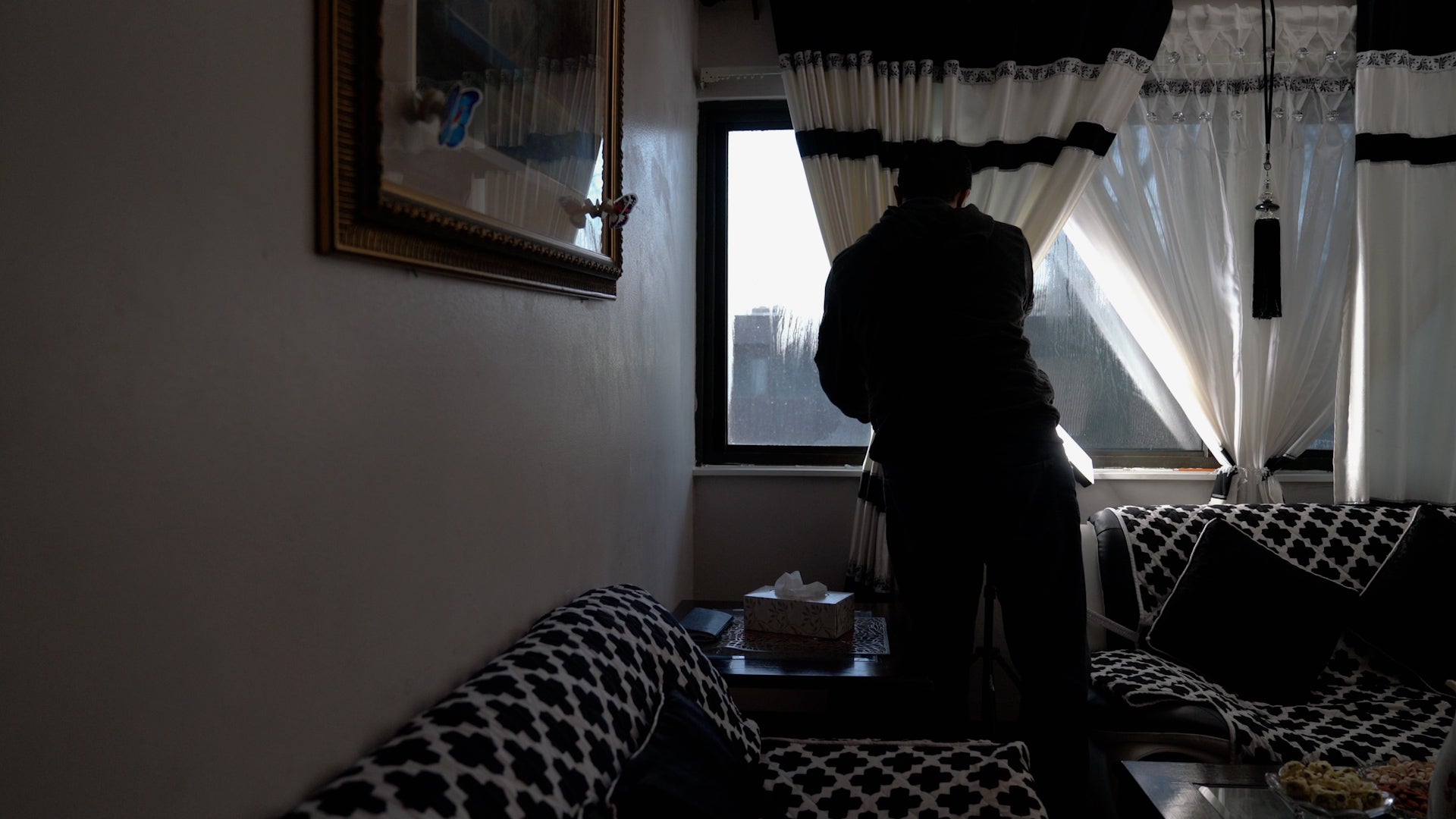Rev. Rebecca Borke had started moving in some furniture — a sofa, a dresser, a desk and some tables and lamps — to a house she owns in Wausau.
Borke, a Methodist pastor, has used that home to host recently-arrived refugees.
In early February, an Afghani family was scheduled to move in.
Stay informed on the latest news
Sign up for WPR’s email newsletter.
“I had heard that the husband is a physician and he and his wife have, I believe, a 2-year-old child,” Borke recalled.
But that changed just weeks before the family’s planned arrival. That’s when Borke learned of an order from President Donald Trump that took effect on Jan. 24, calling for the U.S. Refugee Admissions Program to be suspended for at least 90 days.
“The United States lacks the ability to absorb large numbers of migrants, and in particular, refugees, into its communities in a manner that does not compromise the availability of resources for Americans, that protects their safety and security, and that ensures the appropriate assimilation of refugees,” the order said. “This order suspends the USRAP until such time as the further entry into the United States of refugees aligns with the interests of the United States.”
The order is being challenged by multiple lawsuits, including one brought by the U.S. Conference of Catholic Bishops and another brought by multiple refugee resettlement agencies.
But while those lawsuits play out, refugee resettlements have remained suspended for months.
That’s affecting communities across Wisconsin, including Wausau where Borke had been preparing to welcome new neighbors.
“Now to have that denied puts me at grave concern for this new family’s safety,” Borke said. “And I feel such a sense of loss.”
In the 2024 fiscal year, just over 100,000 refugees arrived in U.S. That includes 1,825 people who came to Wisconsin, according to data from the State Department’s Refugee Processing Center.
For those arriving in Wisconsin, the most common countries of origin were Burma, the Democratic Republic of Congo, Venezuela, Somalia and Afghanistan.
The U.S. Refugee Admissions Program works with multiple agencies to screen refugees who are admitted to the U.S. after fleeing persecution in their home countries.
“I wish people knew first of all that refugees are legal residents,” said Borke, who leads a group that helps refugees adjust to life in the Wisconsin, known as New Beginnings for Refugees. “They have been thoroughly screened and vetted and approved by multiple national and international agencies.”
Refugees often fill vital jobs in central Wisconsin, said Janice Watson, who leads the ECDC Multicultural Community Center — an agency that resettles refugees in Marathon County.
“Our older folks are retiring, and there are lots of positions that are open,” Watson said of the Wausau area. “The clients that we have here are giving back to our economy. … They all come with experiences. We have welders. We had a doctor that was on the list to come the last time.”
The Multicultural Community Center hasn’t resettled any new refugees since Trump’s order took effect in late January. Over the last few months, Watson said the organization has been focusing instead on supporting its most-recently arrived group of 42 refugees who landed in the country before the order took effect.
“Our focus will always stay on our refugee clients, helping them with self sufficiency, which means finding them the right jobs, making sure that the children are in school, making sure that folks know how to navigate the system, and then they become great residents and they can give back to the community,” Watson said.
But Watson said providing those services has become more difficult after a federal funding freeze caused the organization to lay off five people, leaving it with a staff of 12. Although the organization continues to accept private donations, Watson said the vast majority of its funding comes from the federal government, and close to $200,000 has been tied up by the federal freeze.
By the time they arrive in the U.S., most refugees have grappled with years or even decades of uncertainty, said Margaret Anderson, a Wausau resident.
Anderson and her husband, Erik, are both retired physicians who volunteer with New Beginnings for Refugees. Since 2021, they’ve worked with more than a dozen refugee families, helping them adjust to life in Wisconsin.
Margaret Anderson recalled hearing stories from one Congolese family, which had relocated to Zimbabwe temporarily after fleeing civil war. She said they spent more than a decade in a refugee camp, with a suitcase always packed.
“Bags are packed with their clothes and ready to go at any time that they might be called,” she said. “They’re ready to go if they have to be displaced from their camp.”
Even after they arrive in the U.S., Margaret Anderson said it’s common for refugee families to keep their suitcases packed.
Trump’s latest executive order is only amplifying that sense of instability, even among refugees that have already arrived in the U.S., said Erik Anderson.
“They’ve been in the application process for a long time, and then now they’re here, and suddenly they hear that, ‘Well, we may not be welcome here … we don’t know if we’re going to get sent back,’” he said. “So there’s a real sense of angst and uncertainty, even in the community that’s already established.”
Wisconsin Public Radio, © Copyright 2025, Board of Regents of the University of Wisconsin System and Wisconsin Educational Communications Board.




